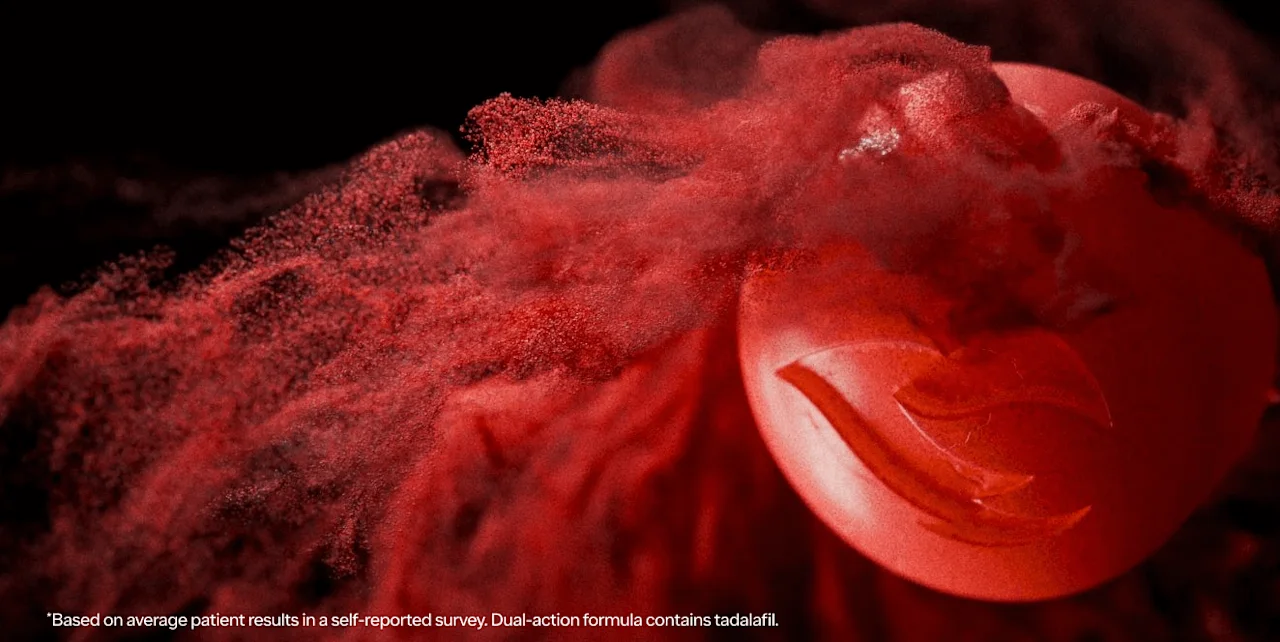Here's what we'll cover
Here's what we'll cover
Here's what we'll cover
Many people with penises may feel self-conscious about lasting long enough in bed before orgasm, and about how long it takes them to be ready to go again. The time after orgasm and before it’s physiologically possible to become aroused again is called the “refractory period”, and if you’re eager to get going, you may wonder how to shorten it.
Continue reading to learn more about the refractory period and what you can do to shorten it.
What is the male refractory period?
Originally named the “resolution period” by sex researchers Masters and Johnson, the refractory period is the length of time immediately following orgasm and ejaculation, and before it's physiologically possible to achieve an erection again.
The length of the refractory period varies widely from person to person, and it naturally gets longer with age. Younger people may need just a few minutes before they can get an erection again, while older individuals could take several hours to achieve an erection following orgasm.
For some people, a long refractory period might negatively impact your sex life. Unfortunately, research on whether or not you can prolong your refractory period with medication is varied.
What causes the refractory period?
Researchers aren’t exactly sure of what causes the refractory period. A leading theory is that the hormones involved in an erection and subsequent orgasm, like prolactin and others, are to blame for keeping arousal at bay after an orgasm. The details of this biological process are unknown.
While scientists may not know what causes the refractory period, they are more knowledgeable about what doesn't cause it. The length of your refractory period is not tied to your fertility, testosterone production, or sexual stamina. So, if you’re concerned that the length of your refractory period is a reflection of your general performance, you can lay those fears to rest.
Factors that impact the length of the refractory period
Like our understanding of the biological process behind the refractory period, researchers’ understanding of factors that influence the length of the refractory period is a little fuzzy. However, we know that one factor to impact the refractory period is age–as people with penises get older, they may see a refractory period of up to 24 hours.
According to the International Society for Sexual Medicine, younger men may only need a few minutes to recover after sex, while for older guys, it may take as long as 12 to 24 hours.
Other factors that may have an impact on your refractory period include:
Medications
Fatigue
Mood
Eagerness to engage in sexual activity
Lifestyle (diet and exercise routines)
While there is no proven connection between healthy lifestyle choices and the refractory period, diets and exercise routines that promote heart health and blood flow are known to improve the strength of erections.
How can you shorten the refractory period?
Some research suggests that the refractory period can be shortened by ED medications like sildenafil (brand name Viagra).
One study found that 40% of male participants with an average age of 32 years old reported that taking sildenafil reduced the refractory period. It was shortened from a median time of 14.9 minutes to 5.5 minutes—a reduction of 9.4 minutes. However, another study found that taking sildenafil made no difference in the length of the refractory period.
Sildenafil and other oral ED medications, known as PDE5 inhibitors, work by suppressing an enzyme called PDE5, which functions as an erection's off switch. During an erection, a natural chemical called cGMP tells blood vessels in the penis to dilate and fill with blood. PDE5 breaks down cGMP, contracting blood vessels and making blood flow out of the penis. When PDE5 is inhibited, blood vessels stay dilated, prolonging an erection or making it easier to get one when you're turned on.

Scientists theorize that because sildenafil stays in the bloodstream for three to four hours—enabling blood flow to the penis all the while—it could potentially shorten the refractory period by allowing blood to flow into the penis faster after a previous erection.
Seth Cohen, MD, a urologist with NYU Langone Health in New York City, prescribes sildenafil and similar ED medications when patients want to shorten their refractory period. He explains that as long as Viagra is in your system, the penile arteries are still dilated, so sexual stimulation—whether it's manual, visual, or tactile—will increase blood flow to the penis and may shorten the time before you're ready for another round.
Alternate ways to shorten your refractory period
While not backed by adequate research, there are other theories as to how you can shorten your refractory period. These suggestions include:
Eating a nutrient-rich diet
Regular exercise
Properly managing health problems that may cause problems with your erections (heart disease, diabetes, mental health disorders, etc.)
Pelvic floor training
Whether or not these lifestyle changes shorten your refractory period, taking care of your body and mind is never a bad idea.
If you’re concerned about the length of your refractory period, make an appointment with your healthcare provider. They can walk you through possible safe and effective options to help you get the most out of your sex life.
DISCLAIMER
If you have any medical questions or concerns, please talk to your healthcare provider. The articles on Health Guide are underpinned by peer-reviewed research and information drawn from medical societies and governmental agencies. However, they are not a substitute for professional medical advice, diagnosis, or treatment.
Viagra Important Safety Information: Read more about serious warnings and safety info.
References
Betjes, E. (2013). What is the refractory period? ISSM. Retrieved Mar. 10, 2023 from https://www.issm.info/sexual-health-qa/what-is-the-refractory-period/
Ekmekçioğlu, O., Inci, M., Demirci, D., & Tatlışen, A. (2005). Effects of sildenafil citrate on ejaculation latency, detumescence time, and refractory period: Placebo-controlled, double-blind, crossover laboratory setting study. Urology, 65 (2), 347-352. doi: 10.1016/j.urology.2004.09.012. Retrieved from https://pubmed.ncbi.nlm.nih.gov/15708051/
Mondaini, N., Ponchietti, R., Muir, G. H., et al. (2003). Sildenafil does not improve sexual function in men without erectile dysfunction but does reduce the postorgasmic refractory time. International Journal of Impotence Research , 15 (3), 225–228. Retrieved from https://www.nature.com/articles/3901005
Puppo, V. & Puppo, G. (2016). Comprehensive review of the anatomy and physiology of male ejaculation: Premature ejaculation is not a disease. Clinical Anatomy (New York, N.Y.) , 29 (1), 111–119. Retrieved from https://onlinelibrary.wiley.com/doi/abs/10.1002/ca.22655
Seizert, C. A. (2018). The neurobiology of the male sexual refractory period. Neuroscience and Biobehavioral Reviews, 92 , 350–377. doi:10.1016/j.neubiorev.2018.06.011. Retrieved from https://pubmed.ncbi.nlm.nih.gov/29940235/










